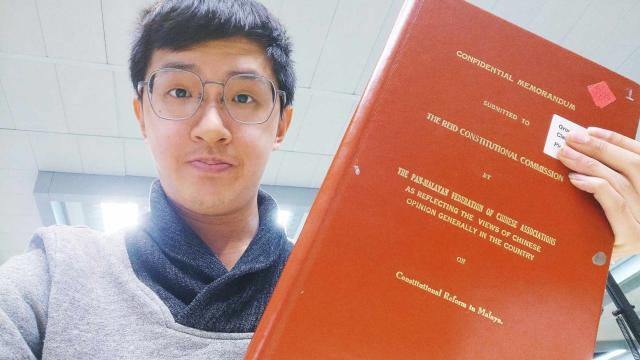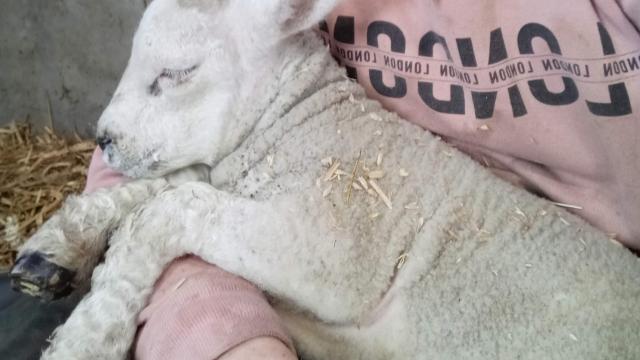
Brexit threatens Biosecurity
This is the background notes to our correspondence in Nature (Brexit threatens Biosecurity, Nature 567, 4611).
Biosecurity is a serious issue, including the protection of human, animal and plant life and health and the environment, from a range of biological threats such as the introduction of pathogens, pests and invasive species, malicious use of biology, and accidental releases of biological materials from laboratories or during transport. As well as direct impacts on health and biodiversity, biosecurity failures can have serious economic consequences – such as those seen in the UK with the 2001 and 2007 Foot and Mouth Disease outbreaks and BSE in the 1990s. Other significant consequences include damage to or loss of species of cultural and ecological importance, with the current spread of ash dieback disease a prominent example.
In his June 2018 speech to the European Union Agency for Fundamental Rights Michel Barnier outlined the challenges facing security post Brexit. Similar arguments apply to biosecurity.
Key points made in the speech included:
The close agreement and cooperation between EU sovereign states over internal security is unprecedented. This is dependent on trust between Member States that is founded on an "ecosystem" based on common rules and safeguards, shared decisions, joint supervision and implementation and a common Court of Justice. Once outside this "ecosystem" the benefits of this cooperation are lost. After Brexit the UK will be outside Schengen and outside the EU's legal order and outside its institutions, structures and safeguards.
For example to increase internal security the EU has Europol to pool EU wide information and deal with cross-border crime across borders. With Schengen partners the EU runs the Schengen Information System to monitor who is crossing Schengen borders. Under the European Investigation Order, the EU collects and exchanges criminal evidence across borders. They also execute judicial decisions for each other, for example by freezing assets of criminals. After Brexit, there will undoubtedly still be cross border cooperation following the establishment of new processes, but this will not include access to EU-only or Schengen-only databases.
European Council guidelines require autonomy in the EU's decision-making processes, so the UK would be unable to participate in determining the working or agendas of any EU wide schemes (such as being on Interpol’s board).
As a final example, the European Arrest Warrant is based on mutual trust (e.g. common agreement on the Charter of Fundamental Rights), uniform application assured by the jurisdiction of the European Court of Justice and the idea of EU citizenship (which enables Member States to set aside any ban on the extradition of their own nationals). Without being part of these elements the UK will be unable to participate in the European Arrest Warrant. Of course there will be new processes but for EU collaboration these will depend on the UK establishing new safeguards on fundamental rights, the protection of data and means of settling disputes.
Concerns about the implications of Brexit across a range of areas of biological security are yet to receive a meaningful response from UK Government. The House of Lords European Union Committee inquiry Brexit: Plant and Animal Biosecurity reported in 2018, providing a comprehensive overview of the issues for animal and plant health. They found that while legislation will be transposed under the Withdrawal Bill, related institutions and their functions will not be, and it is not clear whether existing UK agencies are appropriate for performing such functions or have the capacity to do so. They highlighted the potential for divergence from EU standards over time, particularly where list-based approaches are used (such as with invasive species), because the UK will be excluded from their future development. This divergence poses risks – in terms of disruption to trading relationships – and also opportunities for the UK to move away from list-based approaches or apply higher standards for biological security.
The 2018 UK Biological Security Strategy covers several areas outside the scope of that inquiry, for which similar challenges, and perhaps opportunities, apply:
- Export controls on dual-use items. Legislation will be transposed but with its list-based approach, there is potential for divergence from EU standards.
- Public health. This is generally a member state competency, and so there is little legislation to be transposed. However, we are likely to move outside of cooperative systems that have huge value in health protection – for example the work of the European Centre for Disease Control and joint vaccine procurement systems – and the European Medicines Agency and European Food Safety Authority, which perform functions that will need to be taken on by UK agencies.
- Contained use and deliberate release of genetically modified organisms. Legislation will be transposed and functions will need to be taken up by UK agencies. In this case there is a potential opportunity to move past some of the political blocks on environmental risk assessment process that have obstructed the functionality of the EU regulatory system[1].
- Prevention of misuse of biology. As outlined in the Barnier speech, the UK will fall outside of the benefits of common EU security arrangements. This may complicate cross-border responses to threats of deliberate misuse of biology.
The biosecurity workforce:
A number of sectors important to UK biosecurity currently have a significant proportion of workers from other EU countries. Application rates from citizens of other EU countries have fallen (see footnote 1), and while workers currently living in the UK can apply for settlement status enabling them to continue to live and work here[2], it is not clear what the arrangements will be for those who wish to start working in the UK after we leave the EU.
Additional issues for the scientific community:
A strong scientific base is essential to biosecurity efforts – for our understanding threats, surveillance and monitoring activities, and for management and mitigation. Brexit will disrupt scientific research programmes in various ways. These include the workforce implications mentioned above, changes to the research funding landscape, and additional legal hurdles to research collaborations e.g. in relation to data-sharing and clinical trials[3]. In the event of a no-deal Brexit there are also concerns about obtaining laboratory supplies in a timely manner[4].
The UK is a major partner in EU research and gains significantly from funding. Such funding in theory could be replaced. More importantly the UK is a serious player in collaborative funding applications, such as from the European Research Council, in EU wide programmes and in being part of the European –wide community of science. Both the UK and EU will suffer from any reduction in our role in European science.
Funding issues will not only have implications for university researchers, but will also impact government research, and research within the NHS. In evidence to the 2016/17 inquiry by the House of Commons Health and Social Care Committee on Brexit and Health and Social Care, Public Health England pointed out that European Commission funding “is a core component of the resource used by PHE to develop, deploy and sustain government scientific capabilities”, representing around 20% of its external research funding in 2015/16[5].
The UK has also been a leading contributor to EU biosecurity-related research – for example the UK hosted several reference laboratories for the serious animal diseases and food and feed safety risks, their mandates ending in December 2018 due to Brexit[6], as well as participating in many of the laboratory and public health networks of the European Centres for Disease Prevention and Control[7].
In whichever way we leave the EU, our capabilities in all areas of biological security are put at risk through disconnection from EU systems, agencies, and cooperative processes. The Government must urgently address these matters in order to maintain good levels of protection for human, animal and plant health and our environment, from a range of biological threats.
D. H. Browne
BioRISC, St. Catharine’s College, Cambridge CB2 1RL, UK
House of Lords, London, SW1A 0PW, UK
David C. Aldridge
BioRISC, St. Catharine’s College, Cambridge CB2 1RL, UK
Department of Zoology, University of Cambridge, Cambridge CB2 3QZ, UK
Catherine Rhodes
BioRISC, St. Catharine’s College, Cambridge CB2 1RL, UK
Centre for the Study of Existential Risk, University of Cambridge CB2 1SB, UK
William J. Sutherland
BioRISC, St. Catharine’s College, Cambridge CB2 1RL, UK
Department of Zoology, University of Cambridge, Cambridge CB2 3QZ, UK
[1]See, for example, discussion in Chapter 4: Regulation of GM Insect Technologies, in the House of Lords Science and Technology Committee report GM Insects, December 2015
[2]https://www.gov.uk/settled-status-eu-citizens-families/what-settled-and-presettled-status-means
[3]‘How UK scientists are preparing for a chaotic no-deal Brexit’, Nature News, 17 January 2019
[4]‘How UK scientists are preparing for a chaotic no-deal Brexit’, Nature News, 17 January 2019
[5]Written Evidence submitted by Public Health England, BRE0075, 22 November 2016
[6]https://ec.europa.eu/food/ref-labs_en
[7]https://ecdc.europa.eu/en/about-us/ecdcs-partnerships-and-networks





